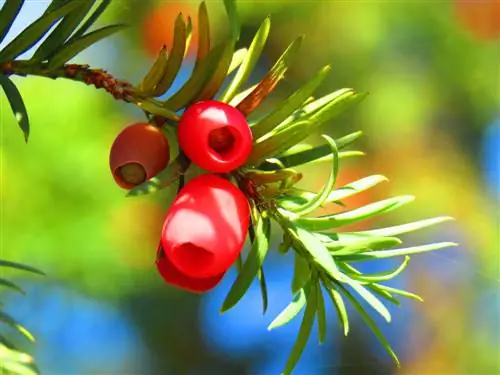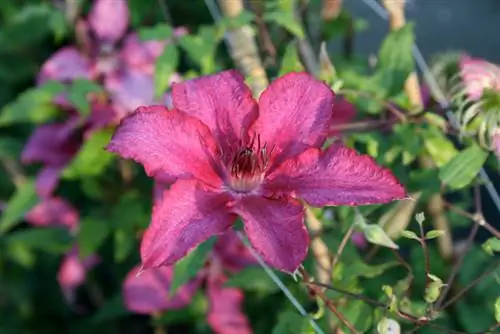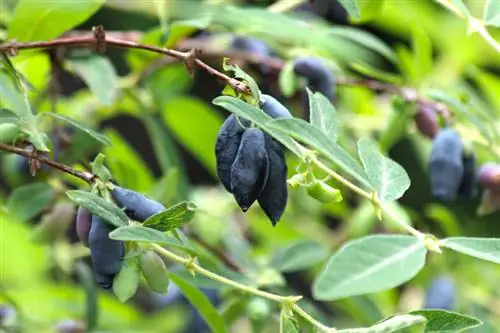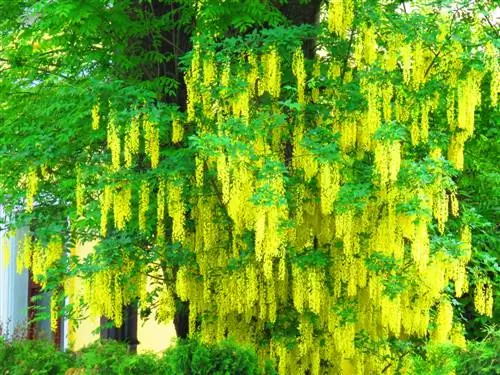- Author admin [email protected].
- Public 2023-12-16 16:46.
- Last modified 2025-01-23 11:21.
The yew is a native conifer that is very resilient and highly valued for its hard wood. Unfortunately, the yew tree is highly poisonous, in all parts of the plant. Caution is therefore advised when planting yew trees or yew hedges.
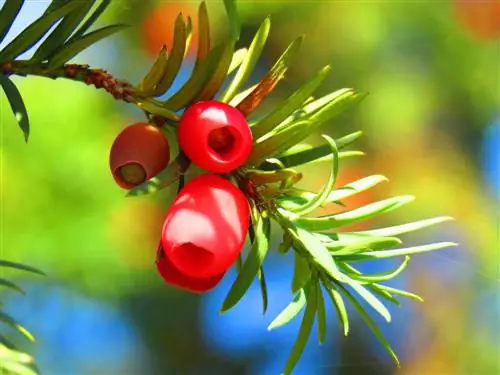
Is the yew tree poisonous?
The yew tree (Taxus baccata) is poisonous in all parts of the plant and contains the toxic poison taxine. Poisoning can cause symptoms such as nausea, seizures and cardiac arrhythmias in humans and animals, and can be fatal if left untreated.
Yew trees are poisonous in all parts of the plant
The botanical name of the yew is Taxus baccata. It got this name because the highly toxic poison taxin is found in almost all parts of the plant. If taken orally, there is an acute risk of poisoning, which can be fatal under certain circumstances.
Children who are easily tempted by the red fruits are particularly at risk. The pulp itself is not said to be poisonous, but the seeds contain a very high concentration of taxin. Not only people, but also animals such as horses, cattle, donkeys, dogs and cats can be poisoned by the yew tree.
You should therefore not plant a yew tree if small children use the garden or animals have access to the trees.
What signs of poisoning can occur?
If you suspect that people or animals have eaten parts of the yew tree, you should immediately call the poison control center or contact a doctor. Signs of poisoning can include:
- bright red lips
- Dry mouth
- Pupil dilation
- paleness
- Nausea
- heavy sweating
- Headache
- seizures
- Cardiac arrhythmias
If the poisoning is not treated, the poisoning can be fatal.
Danger of poisoning from the plant sap
When caring for the yew tree, for example when cutting, you should always wear protective clothing. Although skin contact in itself is not dangerous, some people react allergically to the sap of the yew tree.
Tip
Unlike other animals, the poison of the yew tree does not seem to harm birds. They like to eat the red fruits.

